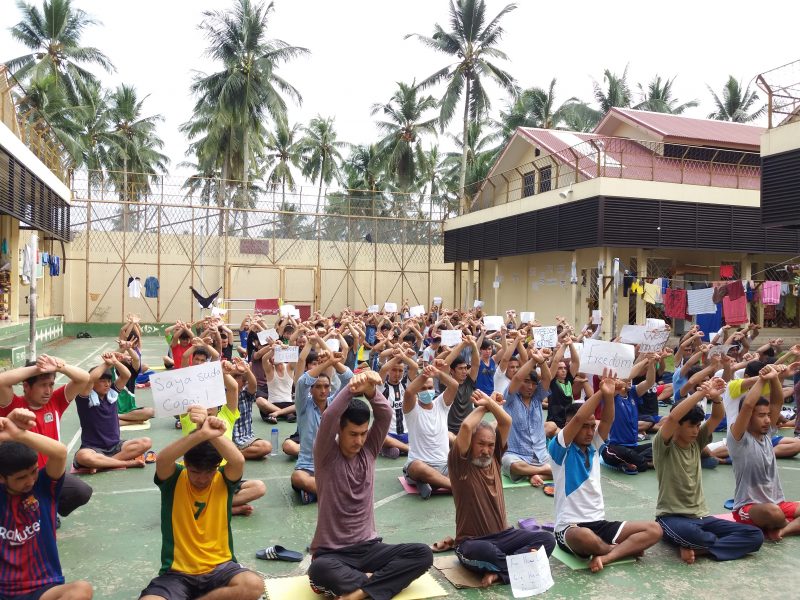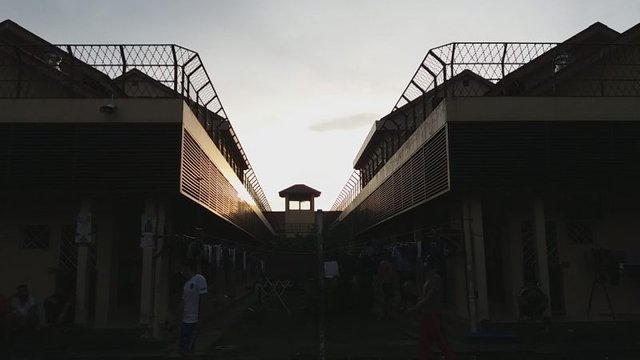Rejected by Australia and Condemned to Detention in Indonesia, Refugees Protest Life in Limbo
 Asif is a young, clever man of 28 years. Despite all the difficulties posed by life in a war-torn country like Afghanistan, he managed to study International Relations at Kabul University and become fluent in four languages, some of which he taught himself.
Asif is a young, clever man of 28 years. Despite all the difficulties posed by life in a war-torn country like Afghanistan, he managed to study International Relations at Kabul University and become fluent in four languages, some of which he taught himself.
In a different time and place, Asif could easily have become whatever he wished—a professor, a diplomat—but not today, and not in the place in which he is currently forced to stay.
Four years ago, Asif decided to leave Afghanistan, after seeing the situation there becoming more drastically unstable year after year. He left in the hope of reaching Australia, a place to start a new life far from the war. During his journey, he found out that his wife was pregnant. He eventually reached Indonesia, and one month later, while being held captive in a detention center, he became the father of a beautiful little girl whom he has never had the chance to meet. But Asif is not a criminal—he is a refugee detained for the past four years in an immigration detention center in Balikpapan, Indonesia, along with other 183 other people. The detainees range in age from 14 to 62 years old, and include people from Somalia, Iran, among other countries. 181 of the detainees are Afghan Hazaras, an ethnic group that in the past decades has been targeted by the Taliban, and now by Daesh.
The detainees range in age from 14 to 62 years old, and include people from Somalia, Iran, among other countries. 181 of the detainees are Afghan Hazaras, an ethnic group that in the past decades has been targeted by the Taliban, and now by Daesh.
The Balikpapan detention center is a building fenced around with electrified barbed wire, originally designed to house those charged with crimes such as human smuggling, drug dealing, and cyber-hacking. The Balikpapan inmates are not allowed to study or work, and don't receive adequate medical care. Among them is at least one teenager and many adults who need urgent medical attention.
In Indonesia, there are 13 immigration detention centers with a total capacity of 1,300 detainees. These detention centers are usually unsanitary, overcrowded and prone to flooding in the rainy season. Since January 17, 2018 the refugees at the detention center in Balikpapan have been protesting against these conditions.
The refurbishing and enlarging the detention facilities was funded by the International Organization for Migration (IOM), using funds received from several Australian government agencies. Australian NGOs have denounced this “Indonesian Solution”, arguing that their government is paying Jakarta “hundreds of millions of dollars to detain and warehouse asylum seekers. Indonesian law permits immigrants to be detained for up to 10 years without judicial review.
Even though the IOM is not a humanitarian organization and does not have a mandate to assist asylum seekers and refugees, the Indonesian immigration authorities or the UNHCR refer asylum seekers and refugees to its care. In Indonesia, the IOM has effectively been helping Australia manage its border controls, but this is far from the only case where the organisation seems to be going against many aspects of its mission. The IOM has been criticized by researchers for its involvement in humanitarian work and in controversial projects in different parts of the world. In Libya, a country that has yet to recover stability following a NATO-led military intervention in 2011, the IOM has received tens of millions of dollars to bolster a system intended to prevent people from departing for Europe.